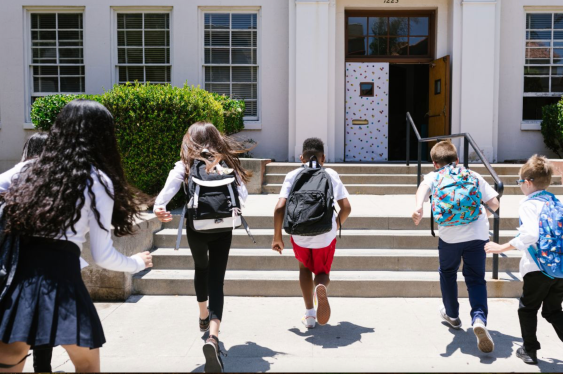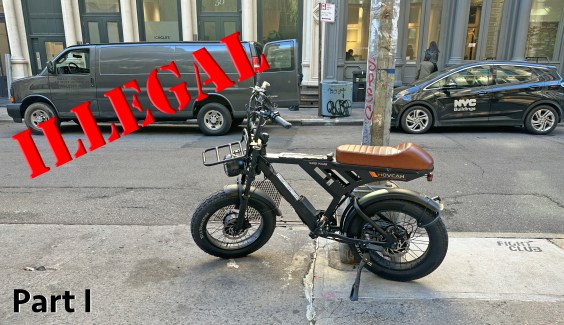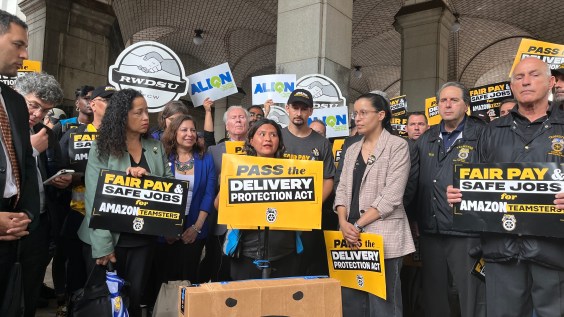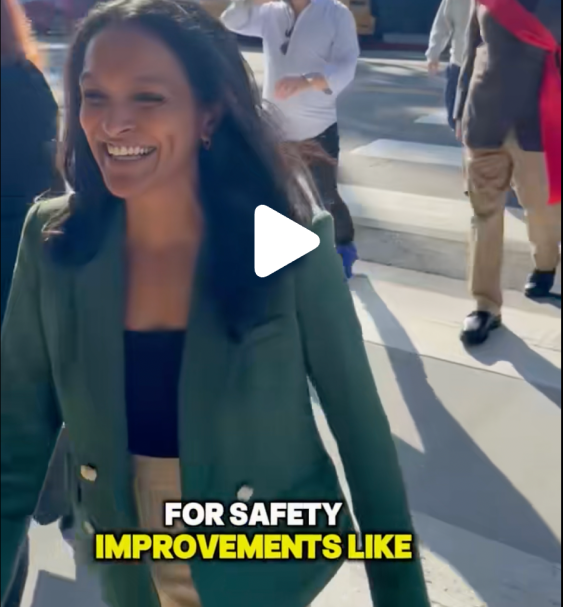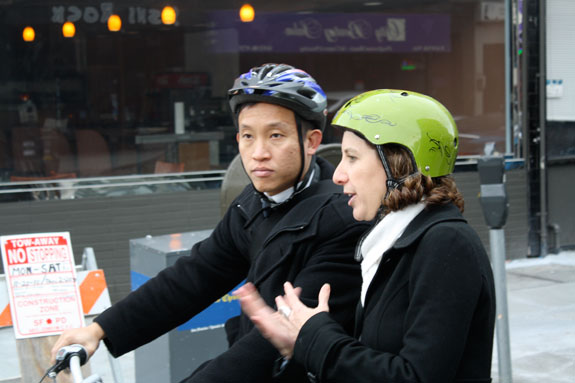
Board of Supervisors President David Chiu, who for the past 24 hours has served as Acting Mayor of San Francisco, said expanding the city's bike network will be his number one transportation priority in the coming year, along with pedestrian safety and improving Muni's reliability and performance.
"First and foremost, as someone who bikes every day, is ensuring that we're expanding our bike network, starting with Market Street, but through all of the major thoroughfares in San Francisco, creating what I think of as bike thoroughfares that we can use to easily get folks around the city," said Chiu, standing outside It's a Grind coffee house on Polk Street, where he led a ride to City Hall with bicycle advocates this morning.
Leah Shahum, the executive director of the San Francisco Bicycle Coalition, was among those taking part in the ride and said as a bicyclist Chiu understands the importance of physically-separated green bike lanes, like the ones on Market Street.
"It is going to be an important year for San Francisco to build on its recent successes for better bicycling," said Shahum. "City Hall leaders have the opportunity to make the city easier to move around with relatively low-cost, quick improvements, such as more physically separated bikeways on key routes like Market Street and Fell Street along the popular Wiggle route."
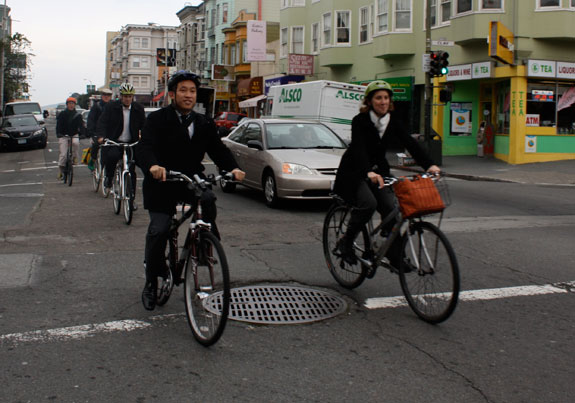
Chiu, who represents District 3 and last year hired former SFMTA spokesperson Judson True as his top aide, also said pedestrian safety is a priority, and later at the Transportation Authority's plans and programs committee meeting called on TA staff to conduct a study on pedestrian safety
"Every day, on average, there are two or more pedestrians that are injured on San Francisco's streets. Pedestrians account for half of the people who are killed in traffic collisions in San Francisco, while overall fatal collisions have actually declined since the 1960s," Chiu told the committee. "New York City, Seattle, Boston, London, Paris, Hong Kong, and Amsterdam all have fewer fatalities per 100,000 residents than we do."
In addition to the enormous human toll, Chiu also pointed to the amount of money the city spends on pedestrian fatalities, about $3.5 million per death, and more than $280 million annually.
"The city pays a significant amount of money every year settling lawsuits and dealing with the emergency care and other first-responder costs to accidents so it makes perfect sense to incorporate that information into the prioritization of infrastructure funding to get to a system that has a lower risk profile," TA Executive Director Jose Luis Moskovich told Streetsblog.
Chiu said the study, which he would like to see completed by March, should have two purposes: to identify city agencies and departments that are working on pedestrian issues and then to find funding sources for current and future pedestrian projects.
Last month, in one of his last acts as mayor, Gavin Newsom -- working with pedestrian advocates -- issued an executive directive setting targets for improving pedestrian safety.


